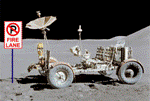Law, College of

Space Law Documents
Document Type
Article
Date of this Version
8-1986
Abstract
Multinational space station activities will raise fundamental legal issues. The laws we take for granted on Earth--e.g., those that regulate commerce, property, criminal activity, and personal interactions--may not be available in space or may conflict with similar laws held by other nations. This background paper analyzes some of the legal consequences of developing and operating an international space station. It describes the different ways that an international space station might be owned and operated and explains how each could affect the rights and responsibilities of the u.s. Government and its citizens. The background paper gives special attention to the application of jurisdiction, tort law, intellectual property law, and criminal law to nations and individuals living and working in space. In addition to these specific legal issues, the paper also examines the role of politics and technology in legal decisionmaking, the usefulness of air law and maritime law analogies, and the conflict between State and Federal law and jurisdiction in the United States. This background paper was requested by the Senate Committee on Commerce, Science, and Transportation as a follow-on to the OTA assessments of Civilian Space Stations and the u.S. Future in Space which was published in 1984, and International Cooperation and Competition in Civilian Space Activities which was published in 1985. The original space station assessment was requested by the Senate Committee on Commerce, Science, and Transportation and the House Committee on Science and Technology, and was endorsed by the House Committee on the Budget and the Senate Committee on Appropriations. The report on cooperation and competition in space technology was requested by the House Committee on Science and Technology and the Joint Economic Committee. This report suggests that Congress need not wait for the completion of the current governmental negotiations in order to begin an examination of the legal issues resulting from space station development and operation. In the near term, Congress could: 1) begin to identify those Federal and State laws which already apply to space station activities and those that Congress believes should apply; 2) begin to resolve questions of power sharing between Federal and State laws and Federal and State courts as they relate to space station activities; and 3) monitor the space station negotiations to ensure that the final space station agreements protect the fundamental rights and interests of u.s. citizens and support U.S. policies, including those related to commercial activities in space. OTA was assisted in the preparation of this background paper by many outside advisors and reviewers, including international legal experts from the U.S. Government, Europe, Canada, and Japan, as well as U.S,. legal experts from academia, industry, private practice, and the government. We express sincere appreciation to each of these individuals and organizations. As with all OTA reports, the content of this background paper is the sole responsibility of the Office of Technology Assessment and does not necessarily represent the views of outside advisors or reviewers.


Comments
OTA-BP-ISC-41 (Washington, DC: U.S. Government Printing Office, August 1986).